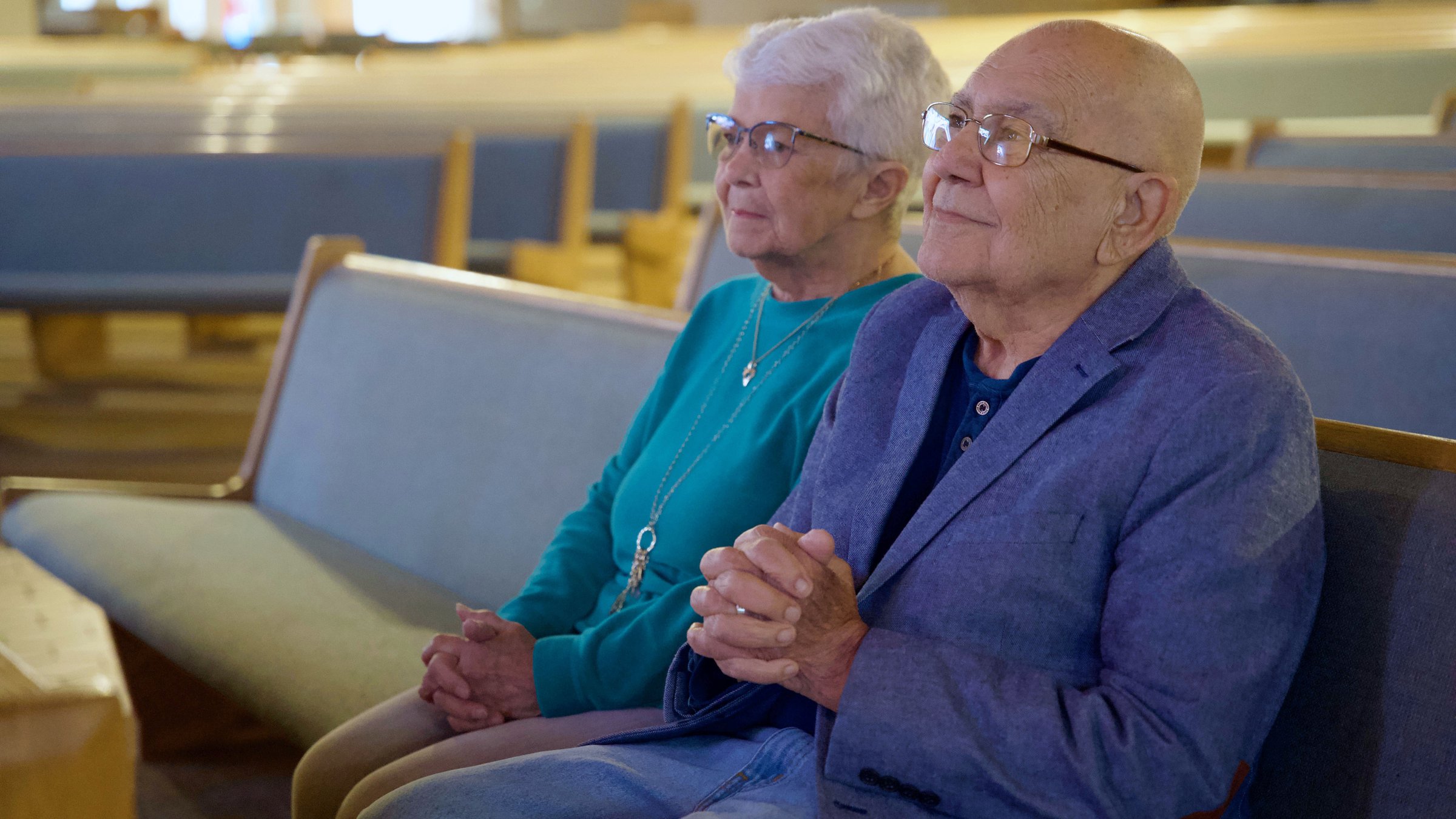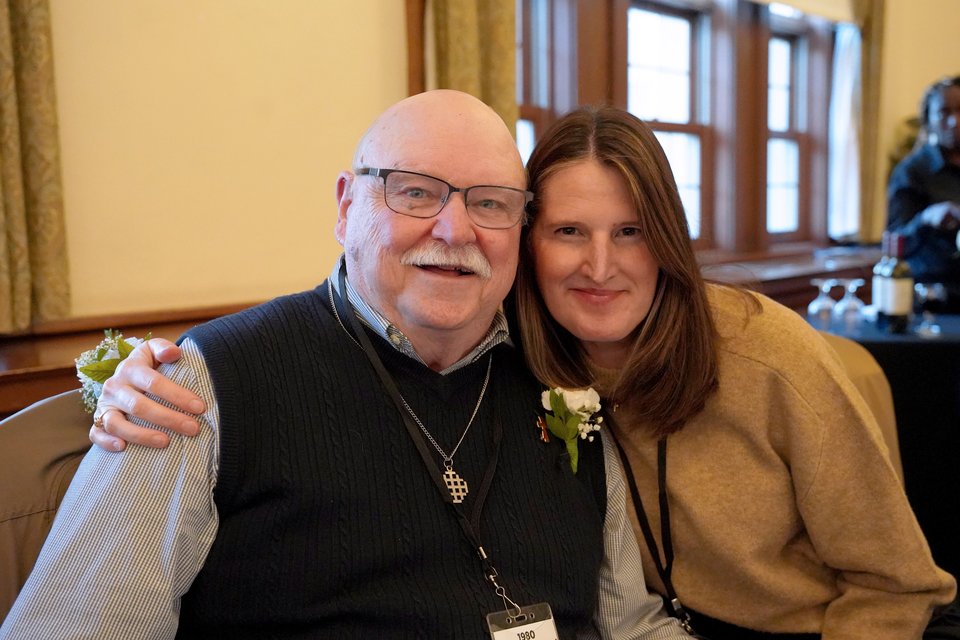At 85 years old, Deacon Robert Delbeke makes history after becoming one of Detroit's first permanent deacons in 1973
LIVONIA — Nearly 50 years ago, Deacon Robert Delbeke became one of the first permanent deacons in the Archdiocese of Detroit's history when he was ordained Jan. 21, 1973, at St. Michael the Archangel Church in Livonia.
Deacon Delbeke was among the third class of permanent deacons in the archdiocese, which introduced the ministry in 1971 after it was re-established following the Second Vatican Council. At 85 years old, Deacon Delbeke is estimated to be one of the longest-serving Catholic deacons in U.S. history and the longest-serving deacon in the history of the Archdiocese of Detroit.
Deacon Delbeke will be honored for his unprecedented milestone during this year's Diaconate Jubilee Mass, which will be celebrated by Archbishop Allen H. Vigneron on Sunday, Oct. 30, at Sacred Heart Major Seminary.
Deacon Delbeke’s life of ministry has been one of tenacity and service, and he's still going strong. He currently serves as a senior deacon at St. Edith Parish in Livonia, where he presides at benediction every Tuesday night. He also volunteers at a weekly lunch for the less fortunate at St. Christine's Christian Services in Detroit (he always brings pastries), and until recently, he ran a street ministry in Detroit in the New Center area.
“I can’t retire. Back in the 1980s, there was a (music) group called Foreigner, and they sang something that stuck with me almost my whole life: ‘I wanna know what love is / I want you to show me / I wanna feel what love is / I know you can show me,’” Deacon Delbeke sang in an interview with Detroit Catholic alongside his wife of 65 years, Carol. “So it is like way underneath there, right here,” he added, gesturing to his heart. “That's what motivates me.”
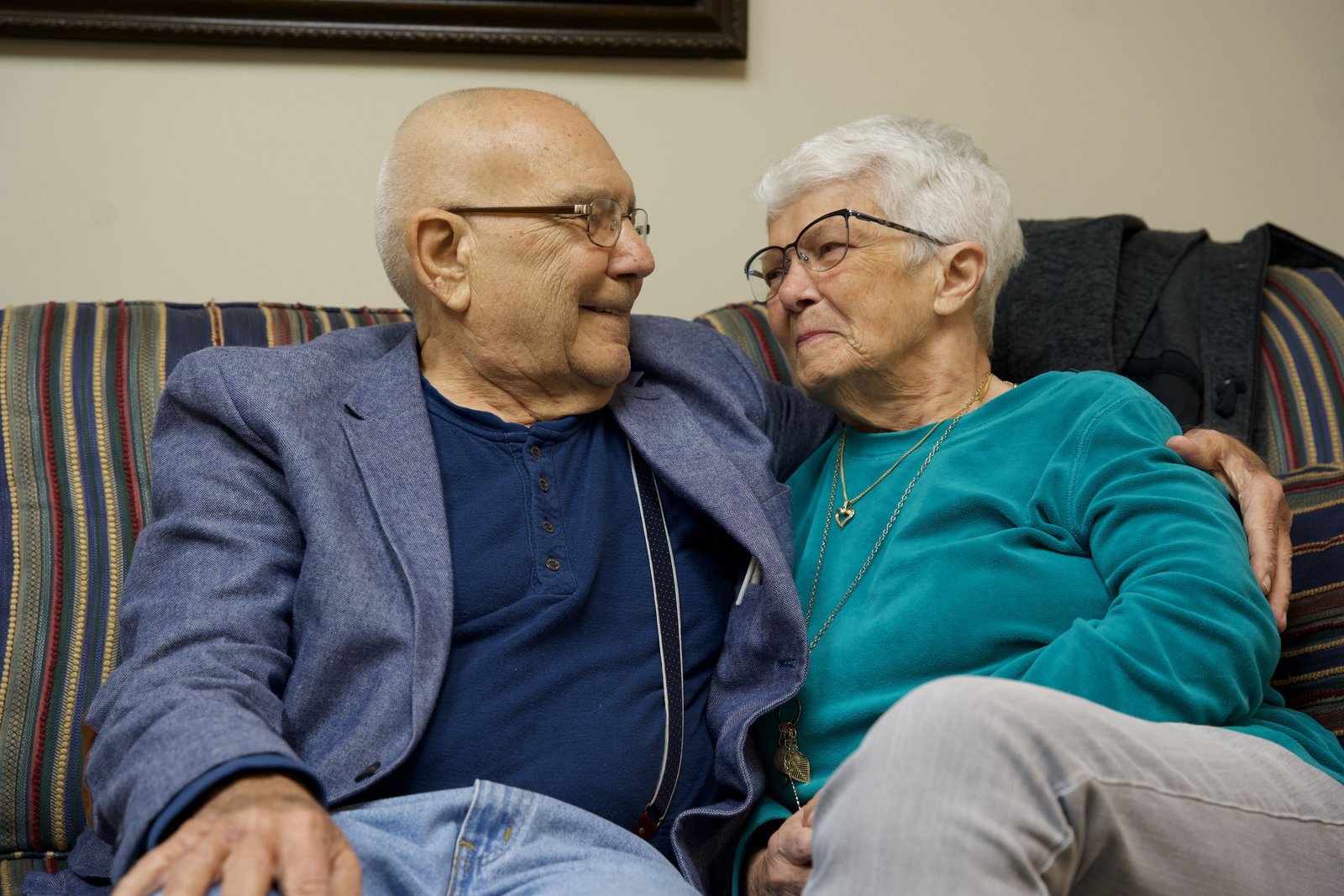
In 1973, the permanent diaconate was fairly new to the Archdiocese of Detroit. While the establishment of the diaconate can be traced back to the Acts of the Apostles, it lost prominence in the Church as time went on, Deacon Chris Beltowski, associate director of the permanent diaconate for the archdiocese, explained to Detroit Catholic.
The Church shifted its focus from the permanent diaconate to the transitional diaconate, which remains part of the process toward ordination to the priesthood. However, during the Second Vatican Council, Pope St. John XXIII began to take steps to restore the permanent diaconate as a distinct order in the Latin rite, Deacon Beltowski explained.
“He brought it back to what it was originally intended to be: unique, the permanent diaconate versus transitional,” Deacon Beltowski said. “That restoration began in 1964, and then in 1967, Pope Paul VI approved it.”
The National Conference of Catholic Bishops in the United States followed, calling for a restoration of the permanent diaconate in 1968. Detroit, under the leadership of Cardinal John F. Dearden, brought it back in 1971.
That year, a friend of Deacon Delbeke’s persuaded him to join him in attending classes for the permanent diaconate at Detroit's Sacred Heart Seminary. While he was initially unsure whether God was calling him to the diaconate, he soon found himself drawn to the vocation.
“When I found out that part of the ministry was to look for the lost, to bring back the stray, to bandage the wounded, and to make the weak strong, I thought, 'This is for me,'” Deacon Delbeke said. “It's not all about putting on a vestment and being at the altar; it’s being with God's people. So I thought, as long as that mission was going to fit, this is for me.”
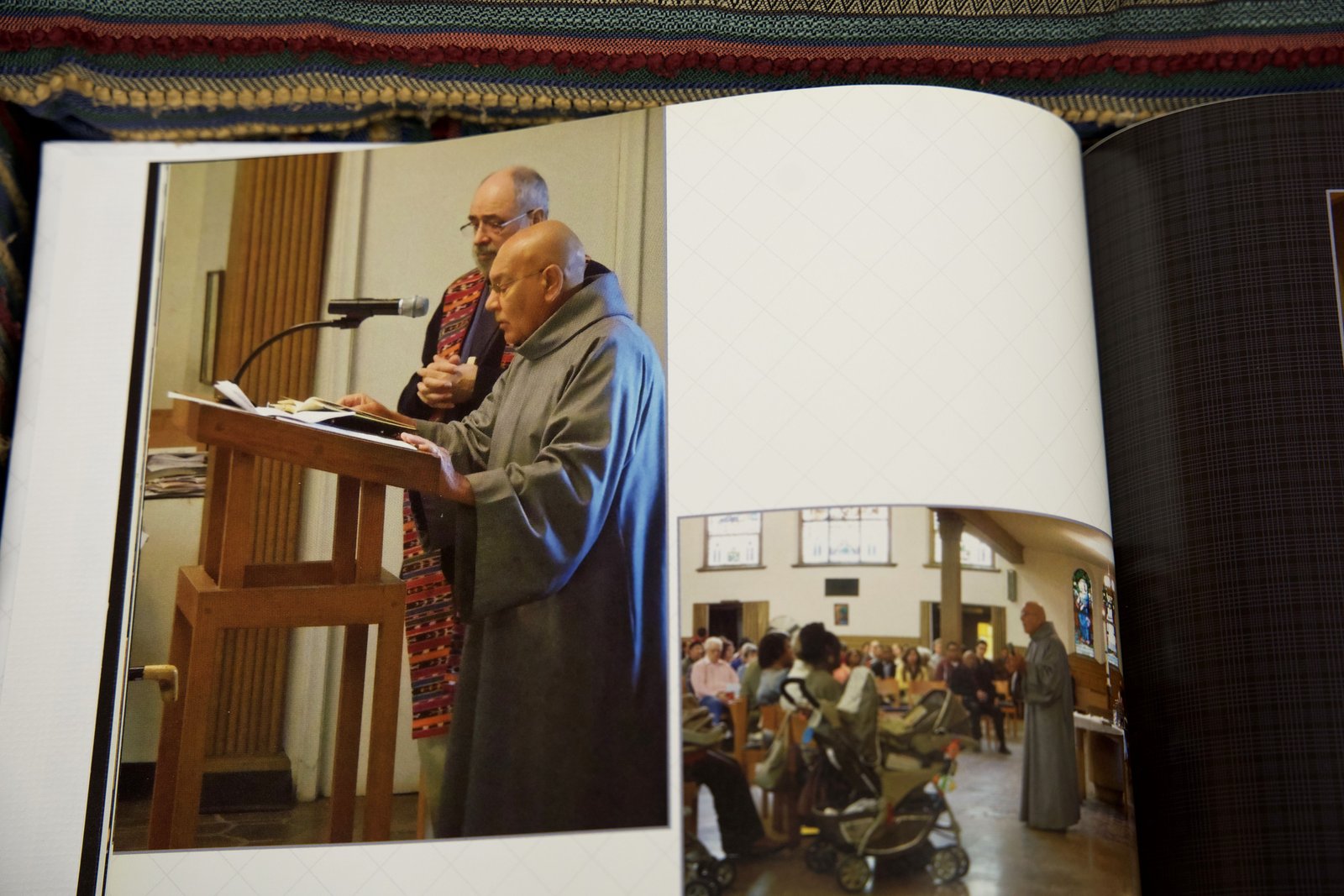
Carol, although supportive from the start, wasn’t quite as certain. The couple was raising their three young daughters, who were all in grade school at the time, and while deacons’ wives are now encouraged to take an active role, it was not the case at the time, Carol explained.
“I always was supportive, however, and I think he worried whether or not I would say ‘yes’ during the part of his ordination when they ask the wife for permission until I actually said it,” Carol laughed.
Deacon Delbeke estimates he was the 15th man to be ordained to the permanent diaconate in the Archdiocese of Detroit. He recalls being a server at the ordination Mass for the first 12 permanent deacons alongside Cardinal Dearden. His solo ordination followed soon after.
“At that time, there were no class setups or class ordinations,” Deacon Delbeke explained. “Deacons were being ordained in their home parish. I think it was an effort to make the permanent diaconate more visible and communicate what it's all about to the people of that parish.”
Those first 12 were scattered outside of the Archdiocese of Detroit, however, after his ordination, Deacon Delbeke was placed at his parish, St. Michael the Archangel, where he served for a year and a half.
From St. Michael, he went on to serve at St. Eugene Parish in Detroit, where he was made director of youth ministry. After serving there for three months, he was hired as the program director of youth ministry for the Archdiocese of Detroit, where he served for two years.
Over the years, Deacon Delbeke has served in many roles at many different parishes and has worn many hats. However, he's always had a particular heart for social justice, the poor and less fortunate, and for youth.
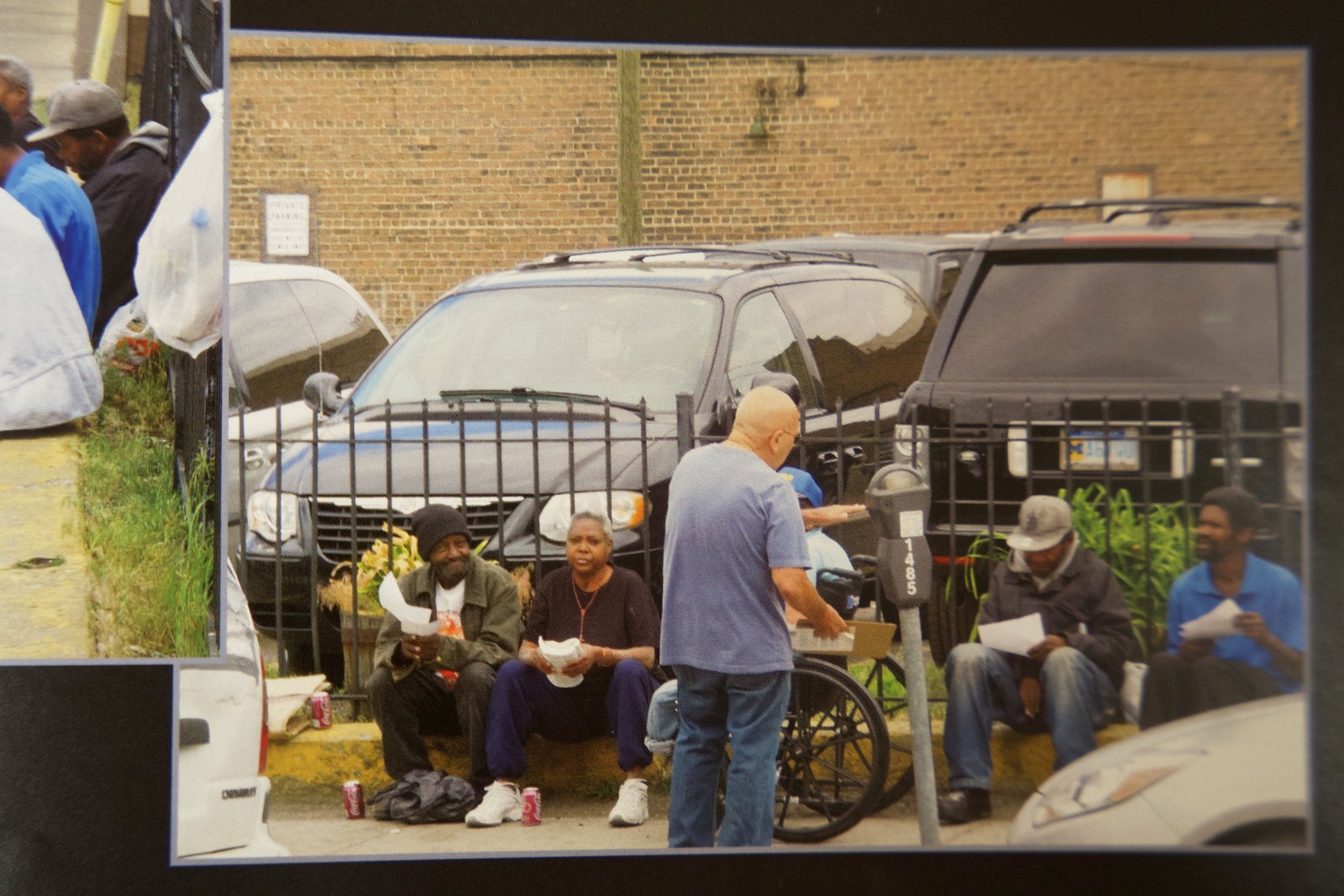
Part of it came from being raised in a poor family, he explained.
“In the fourth grade, we moved in with our grandparents,” Deacon Delbeke said. “In fact, I was thinking about it just the other day ... six of us in our family moved in with my grandparents, and I'm thinking about the great sacrifice they made to welcome us in and take us in. We lived with them until I graduated from high school, and I learned a lot about being poor and discriminatory practices against the poor.”
After retiring from his job in 1999, Deacon Delbeke entered ministry full-time, and in the early 2000s, he received a grant to establish a program in Detroit to teach young people engineering and technical skills, called the Tuskegee Spirits. The group had boys from 8 years old through high school building cars, rockets, lamps and airplanes.
“We would go to Belle Isle to shoot off the rockets, and they would invite their parents,” Deacon Delbeke said. “Meeting the parents offered us the opportunity to invite them to Mass at Sacred Heart and Our Lady of the Rosary (Parish in Detroit).”
John Thorne, executive director of the Detroit Catholic Pastoral Alliance, has known Deacon Delbeke for 22 years. At the time, Deacon Delbeke was getting the Tuskegee Spirits off the ground, and Thorne was serving as head of the urban parish coalition for the alliance. The Tuskegee Spirits began meeting twice a month in the Detroit Catholic Pastoral Alliance offices; however, as they outgrew the space, they moved to the St. Elizabeth Center.
“He was looking where there were gaps in the community and realizing that some of those gaps needed to be filled through the lens of spirituality," Thorne said. "But he also was looking at where there were opportunities for young people. For me, Deacon Bob’s great gift is understanding and listening first, but also finding ways for the Church to meet people where they are.”
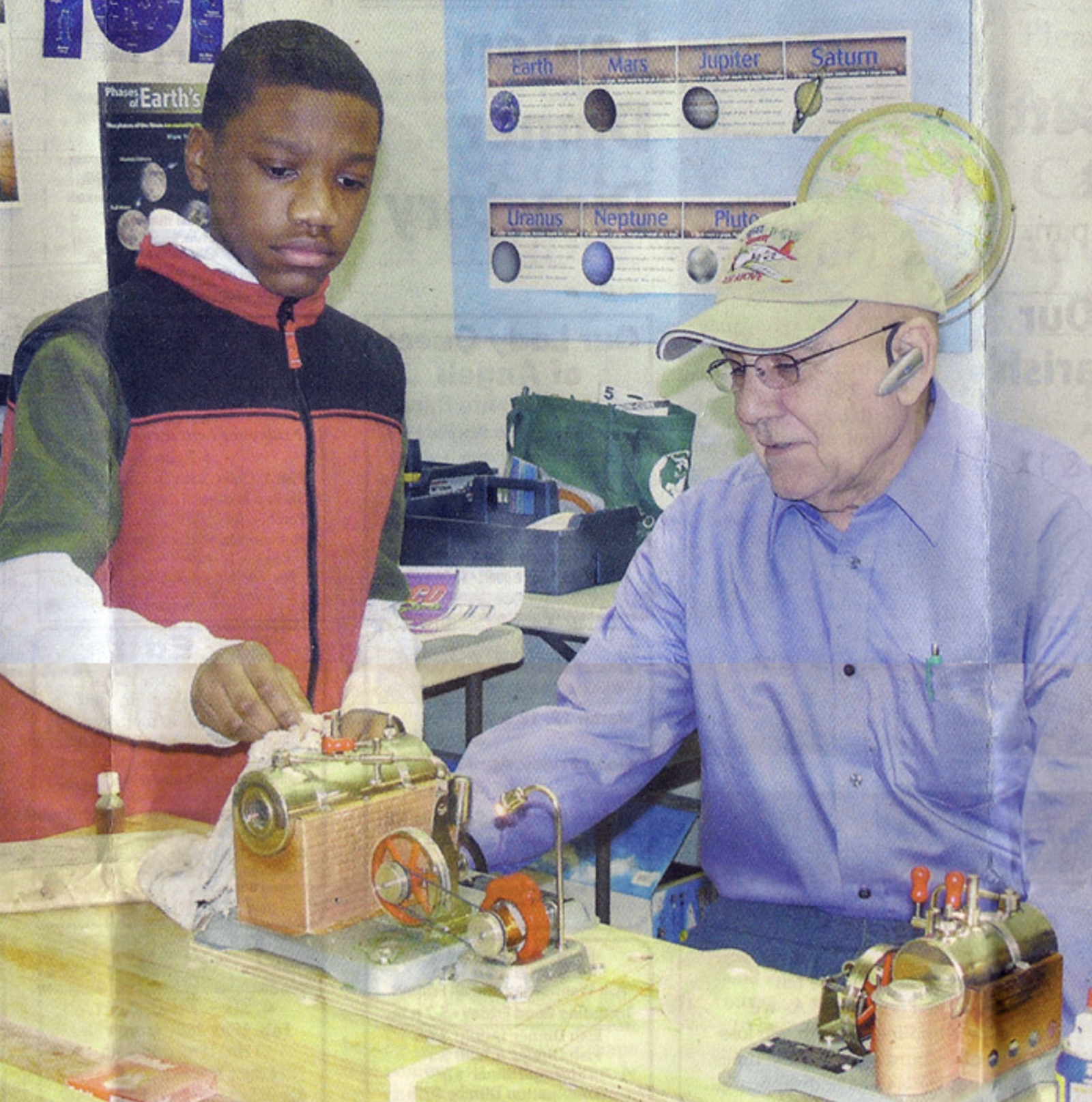
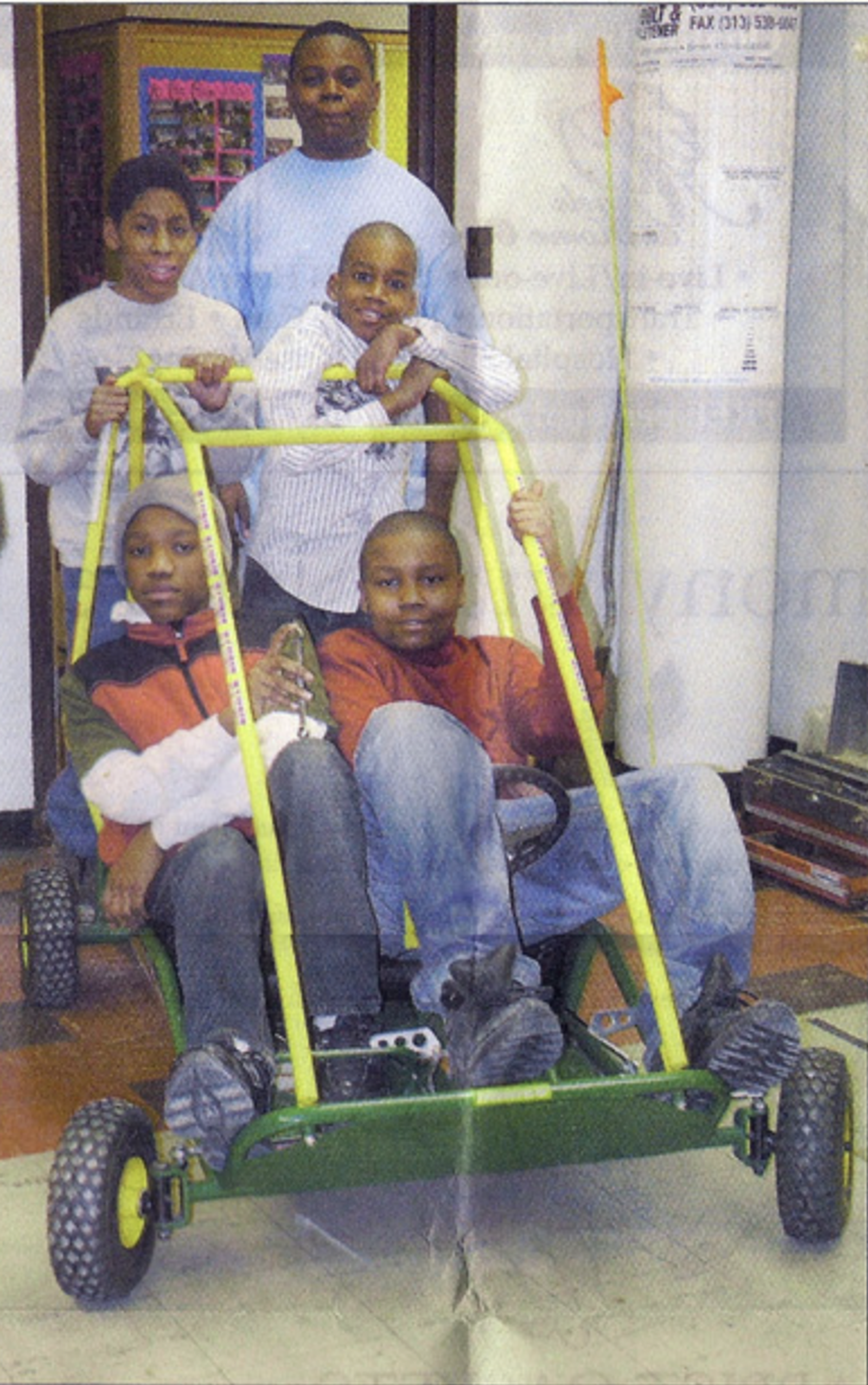
One place Deacon Delbeke meets people is in the streets, Thorne explained. Until recently, Deacon Delbeke had been going regularly to Detroit's New Center area to walk the sidewalks and share the Gospel with passersby.
“If you would see Deacon Bob, you might not know what his impact is; he looks like any other normal person you would meet on the streets,” Thorne said. “However, to see his love and impact and care and concern for the young people, especially in the city ... his heart has always been in Detroit, for Detroit and for Detroiters."
Thorne said Deacon Delbeke puts his feet to the street and his hands to the plow and helps make faith real for people.
“There are so many people we encounter through our street ministry through the Brewster (housing) project that aren’t Catholic, but they have seen Catholics," Thorne said. "They have seen the Catholic hand in action when people came to their door and prayed with them or brought coats to them when they were in need, and to me, Deacon Bob embodies all of that. He is the true presence of Christ wherever he goes — always humble and yet always concerned and willing to give no matter the cost.”
Celebrating Deacon Delbeke's 50th anniversary is a huge milestone for the whole Archdiocese of Detroit, Deacon Beltowski explained. Under canon law, men must be at least 35 years old and have been married for at least 10 years (if they are married) to become a deacon. Practically speaking, Father Time hasn’t allowed a milestone of this kind to be possible until now, Deacon Beltowski said.
“To be able to be a deacon for 50 years is really hard to imagine or fathom,” Deacon Beltowski said. “It's just an amazing gift to the archdiocese that we would have a deacon for 50 years. He's an amazing witness to not only the sacrament of holy orders, but an amazing witness to the sacrament of matrimony."
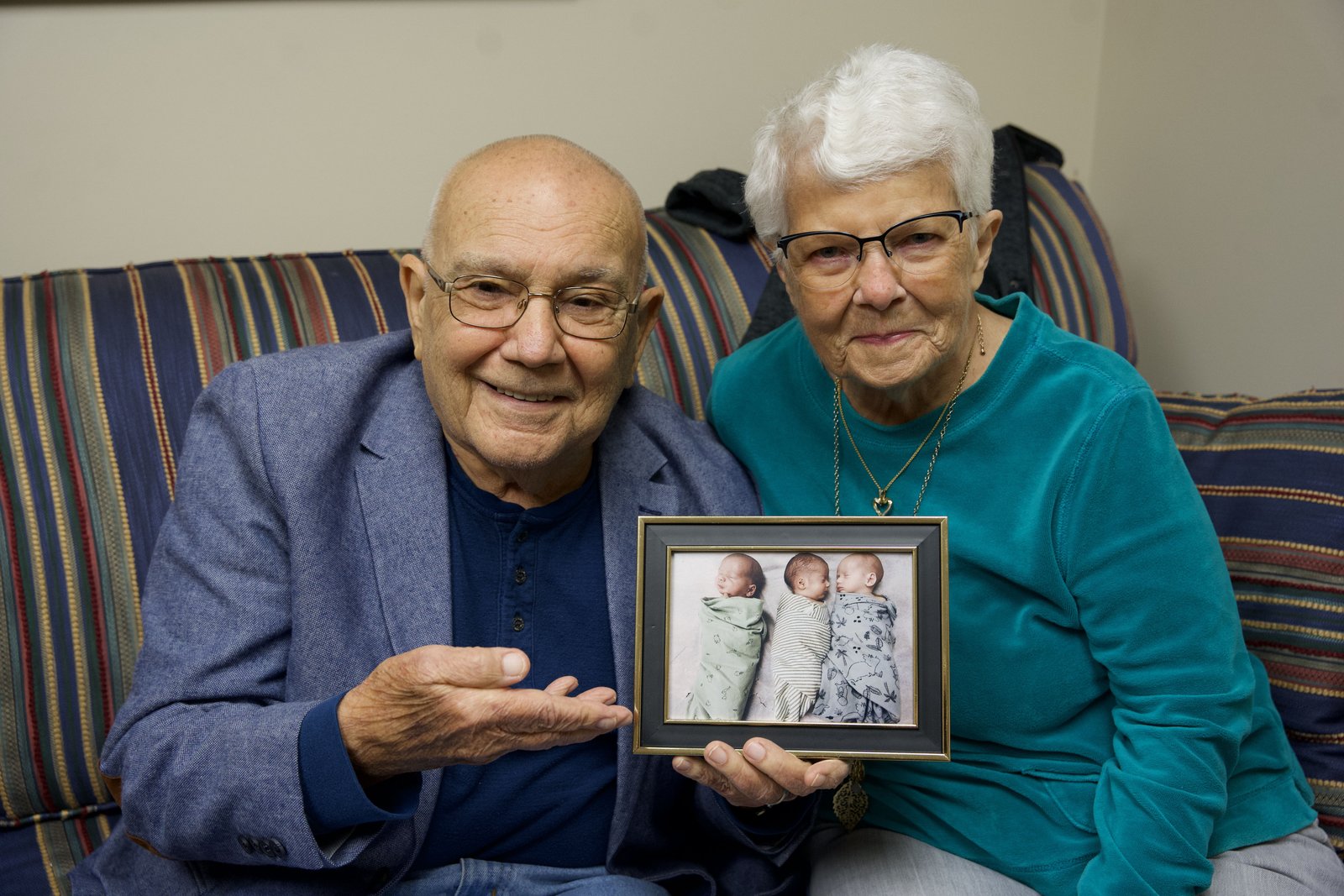
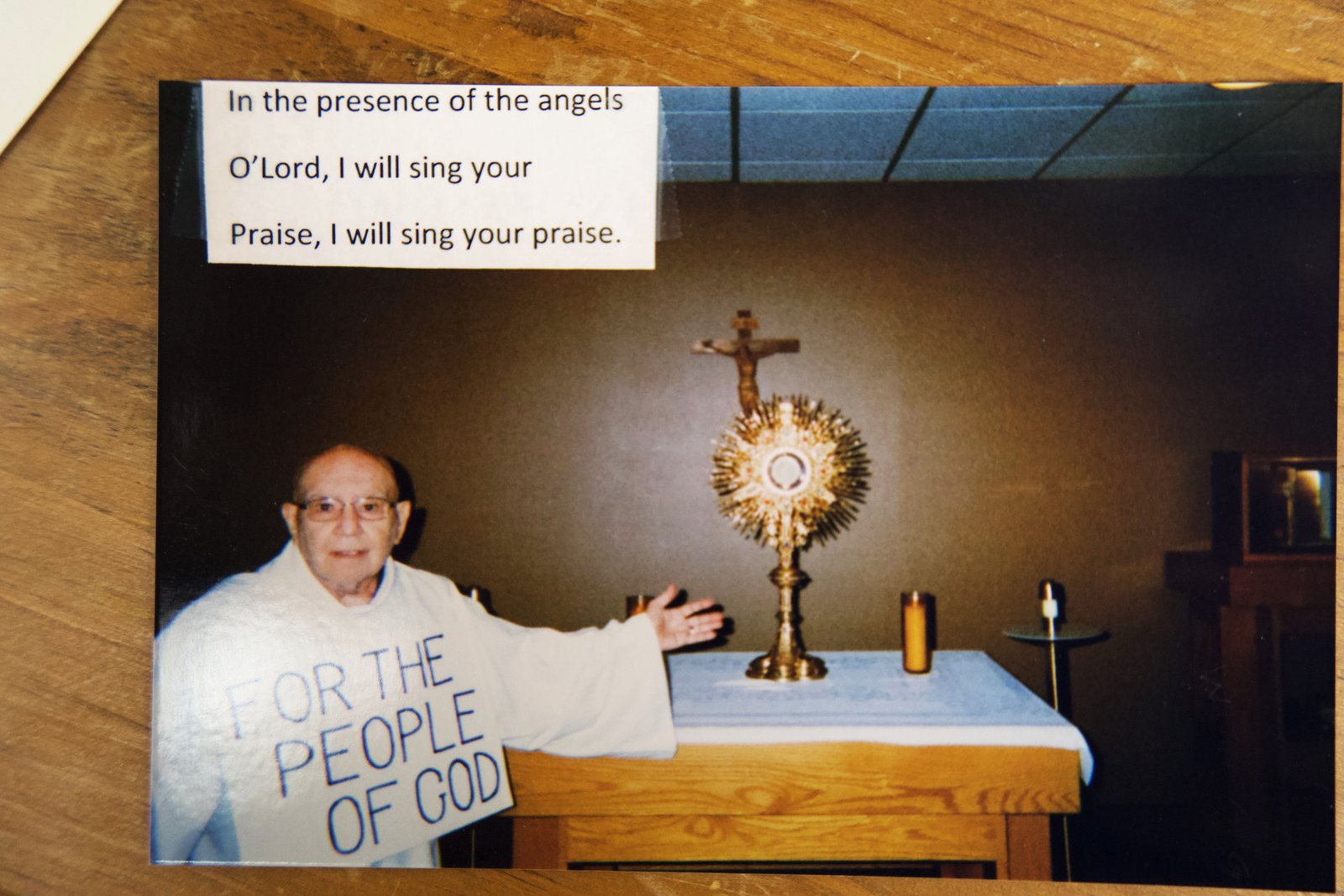
Deacon and Carol Delbeke, who have been married since they were 20 and 19, respectively, have another vocation that's just as important: as grandparents and, more recently, great-grandparents to triplets.
He can’t quit, Deacon Delbeke reiterated, showing Detroit Catholic a recent picture of him standing in front of the altar in St. Edith’s chapel during benediction, holding a sign that says, “For the People of God.”
“When I take the pastries to St. Christine's or when we have benediction at St. Edith’s, I always announce, ‘(This is a) gift of God for the people of God,’" Deacon Delbeke said. "I was using that theme of teaching and the sign as a reminder that while we're doing this, remember this is for you.”
Permanent deacon jubilarians
Archbishop Allen H. Vigneron will celebrate a jubilee Mass for 45 permanent deacons celebrating milestone anniversaries of their ordination Sunday, Oct. 30, at Sacred Heart Major Seminary. Detroit Catholic will publish a full list of this year's jubilarians following the Mass.
Copy Permalink
Deacons Vocations Jubilees Personal witness


